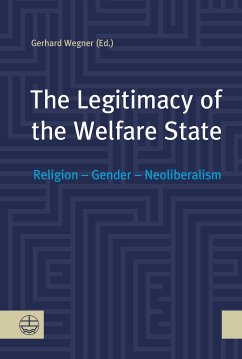This volume contributes to current debates on the historical evolution and legitimacy of the welfare state. At the beginning, the lines of connection are explored between major religious transformations in 16th-century Europe (Reformation) and the birth of modern welfare states. It is shown that religion plays a major role. Furthermore, the volume concentrates on the present-day situation and gives an outlook for the future. How is the situation of the welfare state today? From a global point of view it does not appear to be regarded as a matter of course that it represents the regular development into modern age. Some of the classic welfare states – for example the United Kingdom – seem to have already turned away from this path. The welfare state is undergoing constant metamorphoses, and has to react to situations of changing need. Especially as far as processes of individualisation and gender structures are concerned. However, the welfare state still sticks to the same moral obligations, which once led to his inception. This volume is a collection of papers given at a conference in Berlin in April 2014 on the subject of “Protestant Ethics and the Modern Welfare State: Late Effects of the Reformation”. [Die Legitimität des Sozialstaates Religion – Gender – Neoliberalismus] Der Band interveniert in die gegenwärtigen Debatten um Geltung und Genese des Sozialstaates. Es geht zunächst darum, die Verbindungslinien zwischen den großen religiösen Transformationen im Europa des 16. Jahrhunderts (Reformation) und der Herausbildung moderner Sozialstaaten, zu analysieren. Es zeigt sich: Religion matters. Sodann konzentriert sich der Band auf Gegenwart und Zukunft: Wie steht es um den Sozialstaat heute? Aus globaler Perspektive gesehen erscheint er durchaus nicht als der selbstverständliche Weg in die Moderne. Manche der klassischen Sozialstaaten, wie beispielsweise Großbritannien, scheinen diesen Entwicklungspfad bereits zu verlassen. Zudem wandelt sich der Sozialstaat und reagiert auf veränderte Bedürfnislagen, insbesondere was Prozesse der Individualisierung und der Veränderung von Gender-Strukturen betrifft, bleibt aber doch seinen durchaus moralischen Begründungen verpflichtet. Dieser Band versammelt Beiträge einer Tagung in Berlin zum Thema „Protestantische Ethik und moderner Sozialstaat: Fernwirkungen der Reformation“ im April 2014









